WhatsApp Marketing Automation: A Complete Business Guide With Examples
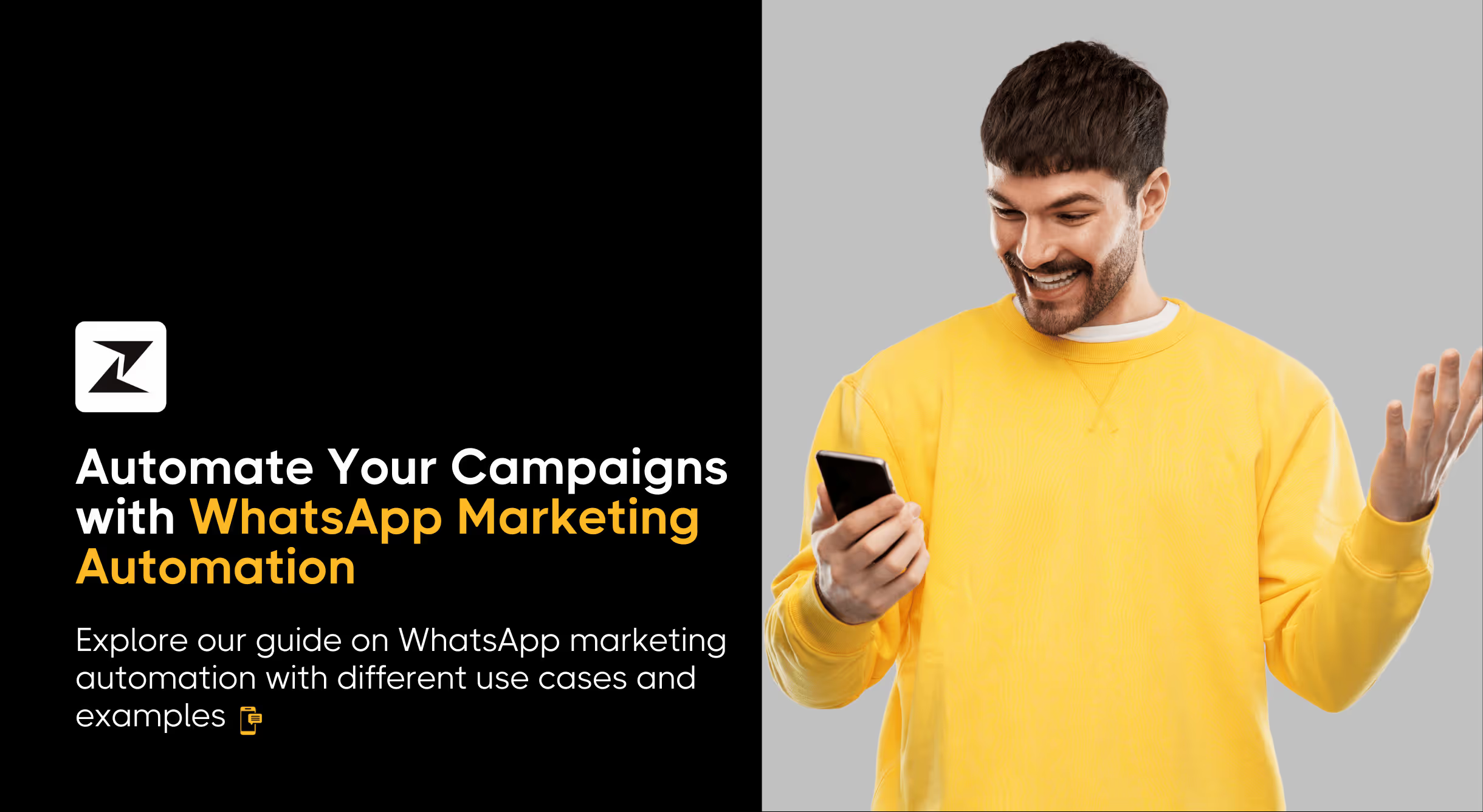
WhatsApp is a free messaging programme that was released in 2009 that allows users to chat with anyone in the globe. You might be wondering what makes it so interesting to businesses—and whether you should be using it—despite the fact that it has been gaining a tonne of admirers.
(Spoiler alert: You ought to use it.)
WhatsApp's Business app includes marketing capabilities for small enterprises, just like Facebook and Instagram do. Businesses may use WhatsApp to communicate with consumers and potential clients to increase engagement and provide prompt service, thus increasing revenue.
Let's examine WhatsApp marketing automation in greater detail and how you can utilize it to enhance your marketing and customer care conversations.
Automate your WhatsApp marketing efforts with Zixflow
Get started with Zixflow’s WhatsApp marketing platform for free
Book a DemoWhat is WhatsApp marketing automation?
WhatsApp is more than simply a standard texting service. Brands may automate whole conversations and message flows by using the WhatsApp API, WhatsApp Business app, WhatsApp tools, and chatbots.
Businesses can apply for the WhatsApp Business chat API, which gives the WhatsApp Business app access to some (but not all) of the available automation functions.
WhatsApp offers a number of marketing automation features, such as:
Automated flow of messages
You may build custom message flows of any size, up to and including full conversations, using the WhatsApp API. Some applications include: Make FAQ auto-replies, provide customer service hours, or programme any other response that will shorten the time customers must wait.
Automated process of sales
A WhatsApp chat bot can help with sales automation. The customer service bot can inquire about the customers intentions, show them the product catalog, help them choose a product, and even enable quick checkout.
Active messaging
Utilize the WhatsApp API to create proactive message templates that are directed at clients who have chosen to receive updates regarding orders, appointments, service requests, or payments.
Interactive Voice Response (IVR) call deflection
Send calls to WhatsApp using this functionality. A number that asks the user if they wish to continue the chat on WhatsApp can be assigned in your IVR system. If they agree, they are immediately transferred to WhatsApp where they can communicate with a human or a chatbot.
Benefits of using WhatsApp for marketing purposes
Beyond texting, WhatsApp provides a number of other channels for connecting with your consumers thereby, encouraging sales engagement.
Businesses may use WhatsApp to communicate with customers in a variety of ways, including shipping updates, appointment reminders, order alerts, tickets or boarding passes, product demos, surveys, support messages, and more.
WhatsApp is a safe platform and delivers communications instantly around the world thanks to its end-to-end encryption.
Due to the quick opening and reading of messages, WhatsApp boasts great engagement rates. In comparison to conventional marketing strategies like email or social media, it provides a more direct and intimate communication route.
WhatsApp enables companies to build closer ties with customers by giving them a direct line of communication. Building trust and loyalty involves regular connection, personalized communications, and prompt customer service.
Businesses can strengthen their marketing tactics, raise client engagement, and encourage expansion by utilizing WhatsApp successfully.
For a memorable first impression and to make your customers feel valued, Zixflow enables your company to send automated WhatsApp messages to its consumers through multi channel sales engagement campaigns.
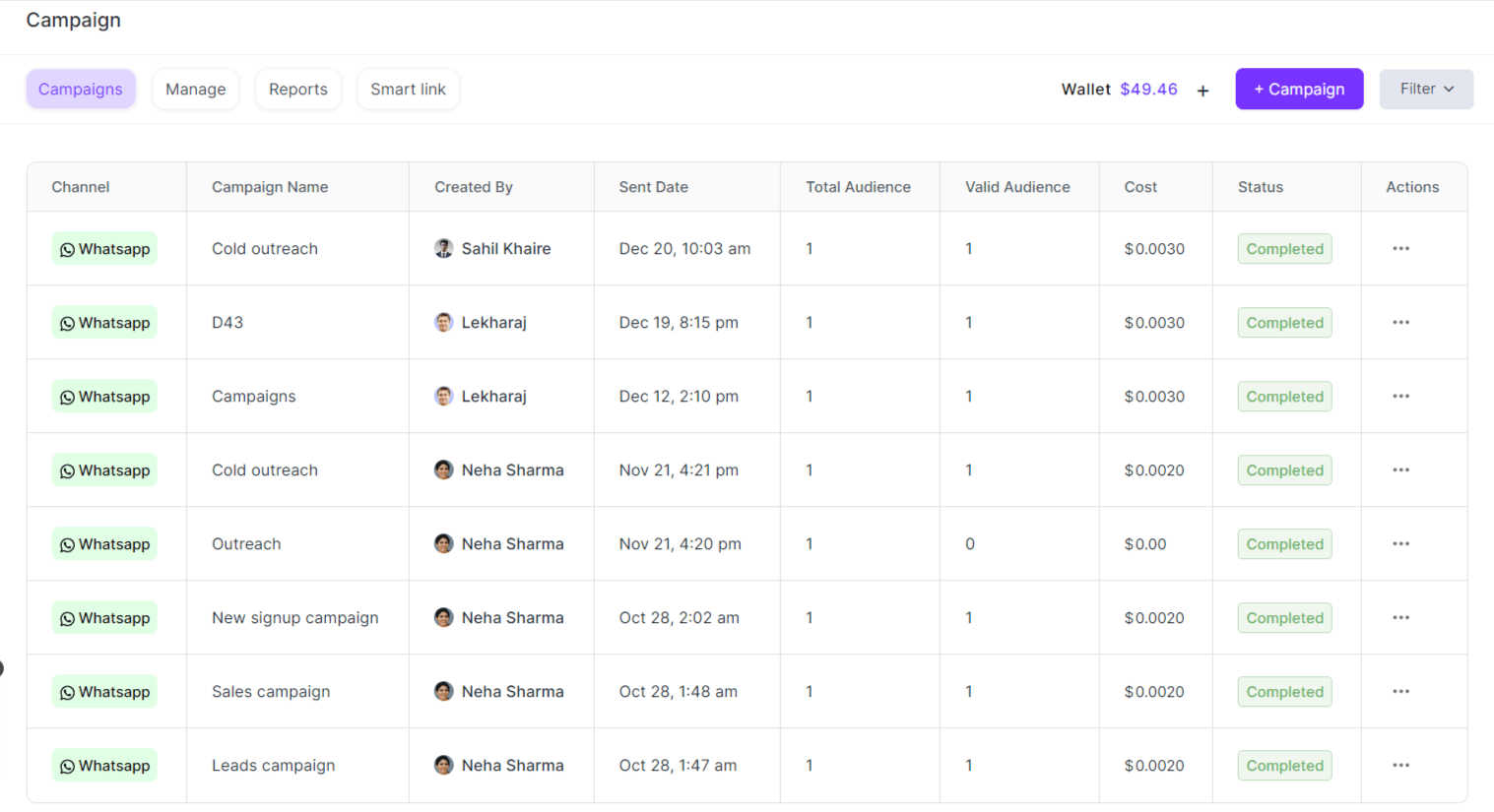
What is the future of Whatsapp marketing automation in businesses?
The capacity of WhatsApp marketing for companies to establish more intimate connections with prospective clients is where its future resides. Businesses have utilized WhatsApp in the past to distribute mass messages and coupons. However, WhatsApp's latest features, like Status and Groups, let companies interact directly with their target market and develop more engaging marketing strategies for WhatsApp.
Businesses are devoting time to using WhatsApp for business (B2B & B2C) as a platform to share WhatsApp catalogs and take consumer orders because the platform's future for business has been promising.
Commerce firms have been at the forefront of improving upselling and cross-selling chances based on customers' intent and past behavior, from two-click payments to AI-powered recommendation engines. Furthermore, many businesses throughout the world are putting a lot of money on WhatsApp as its possibilities continue to increase for contactless commerce.
The same is true of other potential industries. For instance, establishing connections and fostering relationships with potential clients is key to WhatsApp marketing for businesses in the future. Businesses may establish a community around their brand and more personally interact with their target audience by using Status and Groups.
What are the various ways to use WhatsApp marketing automation for businesses?
Marketing professionals only need to click to access anything, including (but not limited to) mass messaging, notifications, alerts, upsell/cross-sell, and ongoing assistance, since automation has taken over all essential aspects of marketing at organizations today.
Businesses are also utilizing chat platforms to boost client engagement rates while utilizing WhatsApp marketing to fully automate the customer journey. Businesses can expand the reach of their WhatsApp business marketing plan with the use of tools like the WhatsApp business API offered by WhatsApp business messaging platform.
Zixflow is a WhatsApp marketing tool with automation capabilities which can be used by businesses to integrate with WhatsApp cloud API and use it as a Whatsapp CRM tool for various marketing strategies.
Utilize WhatsApp's cloud-based capabilities to automate, schedule, and send customized 1:1 and group WhatsApp messages for marketing, sales, and support, all from a single, user-friendly dashboard.
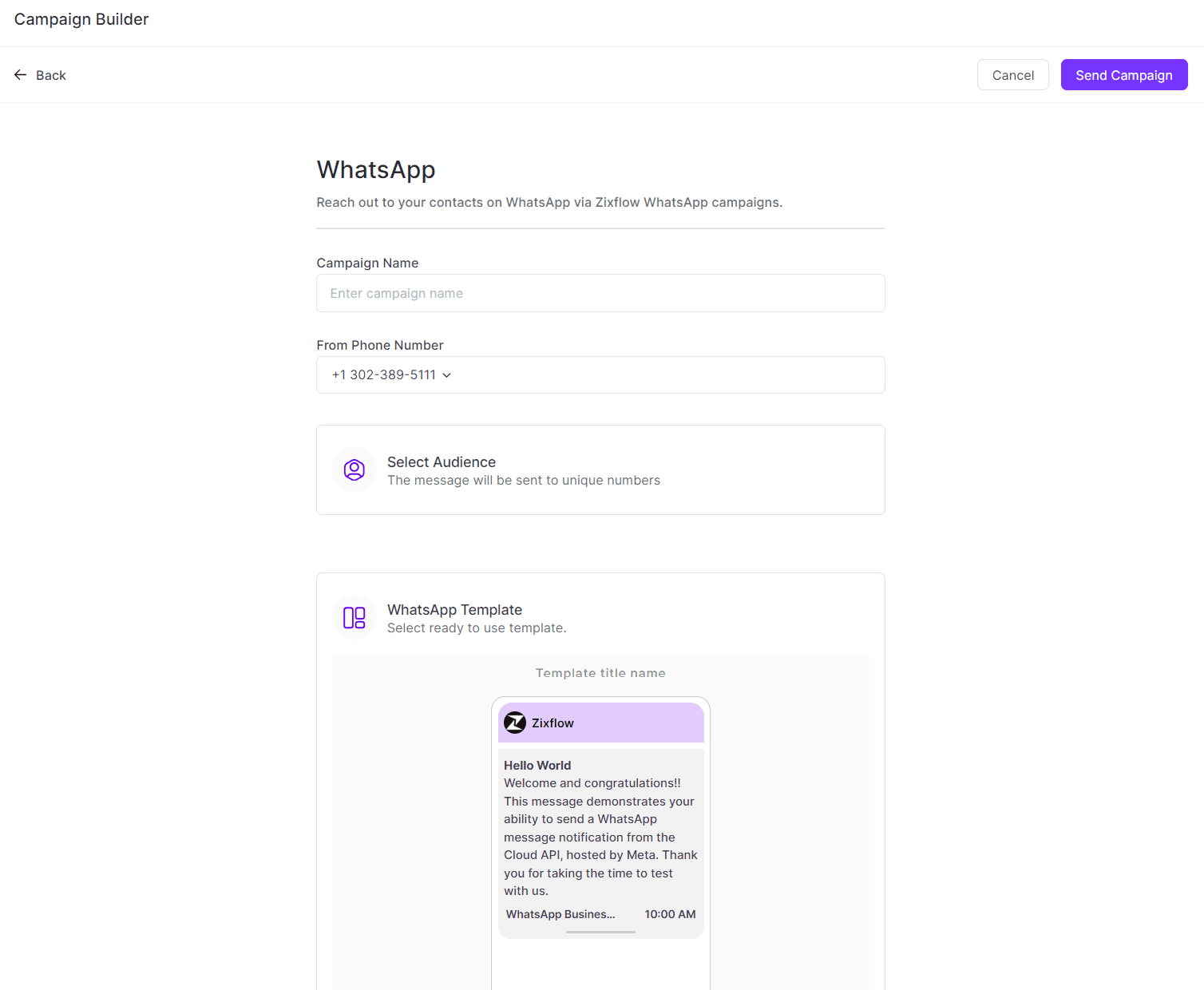
Let’s guide you with use cases and examples
An overview of WhatsApp marketing automation for businesses is provided below, along with use cases and examples to show you how it may be used successfully:
Transactional notifications and updates
Your business can use transactional notifications and updates from WhatsApp as a useful tool to educate clients of various transaction-related activities. For transactional notifications and updates, organizations can use WhatsApp in the following ways:
Order confirmations
You can use automatic WhatsApp messages to confirm order details, such as the items ordered, quantities, and order numbers, once a customer puts an order hence promoting customer-centric selling. Customers can receive fast confirmation and reassurance thanks to this.
Shipping updates
Businesses can use automatic notifications to let customers know how their order is doing as it moves through the delivery process. These updates may contain shipping information, tracking numbers, and anticipated arrival dates.
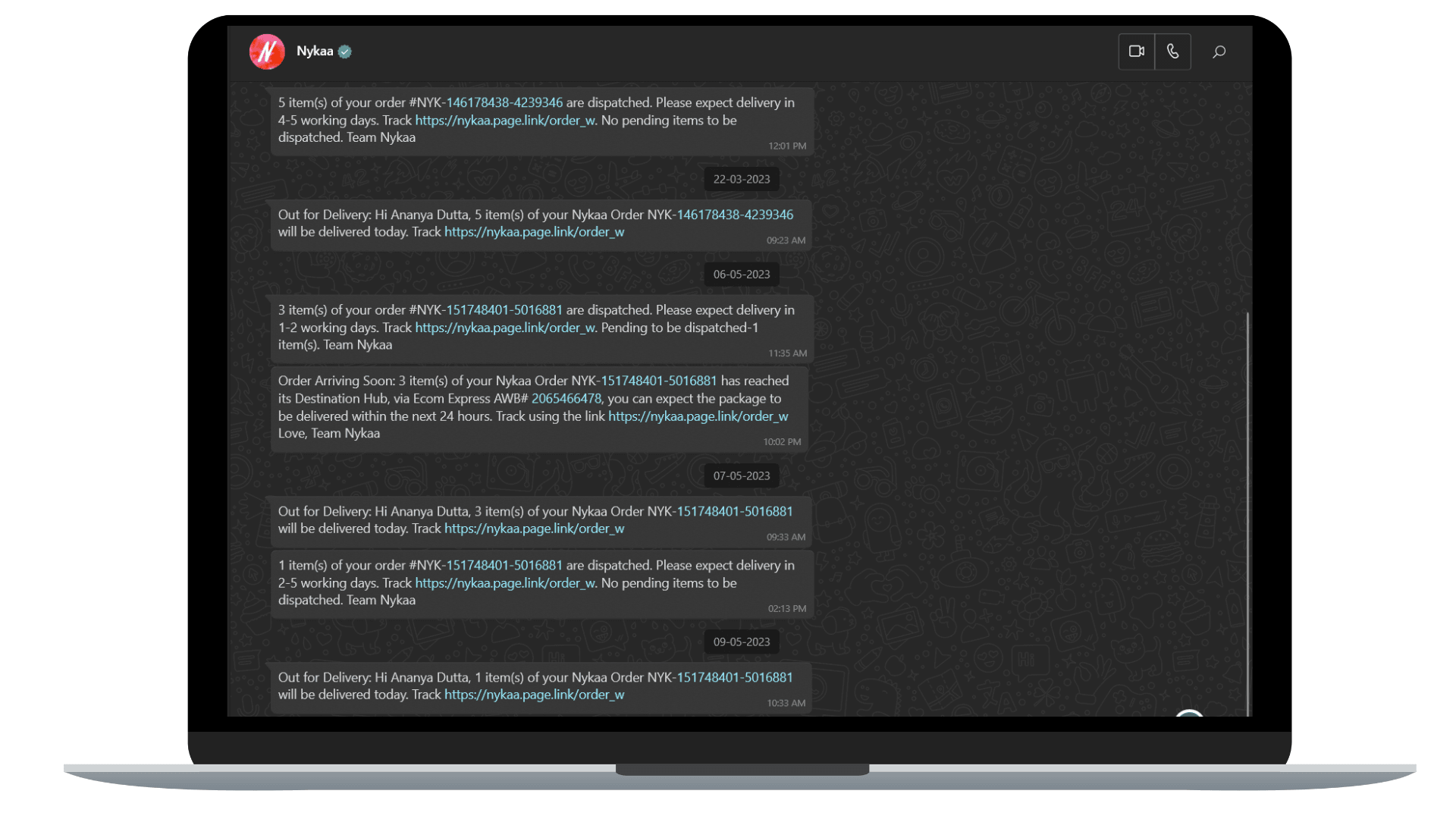
Payment reminders
Your business can utilize automatic WhatsApp messages to remind customers to make payments if they have unpaid invoices or if the due date is coming up. As a result, payment efficiency can be increased overall and late or missed payments can be decreased.
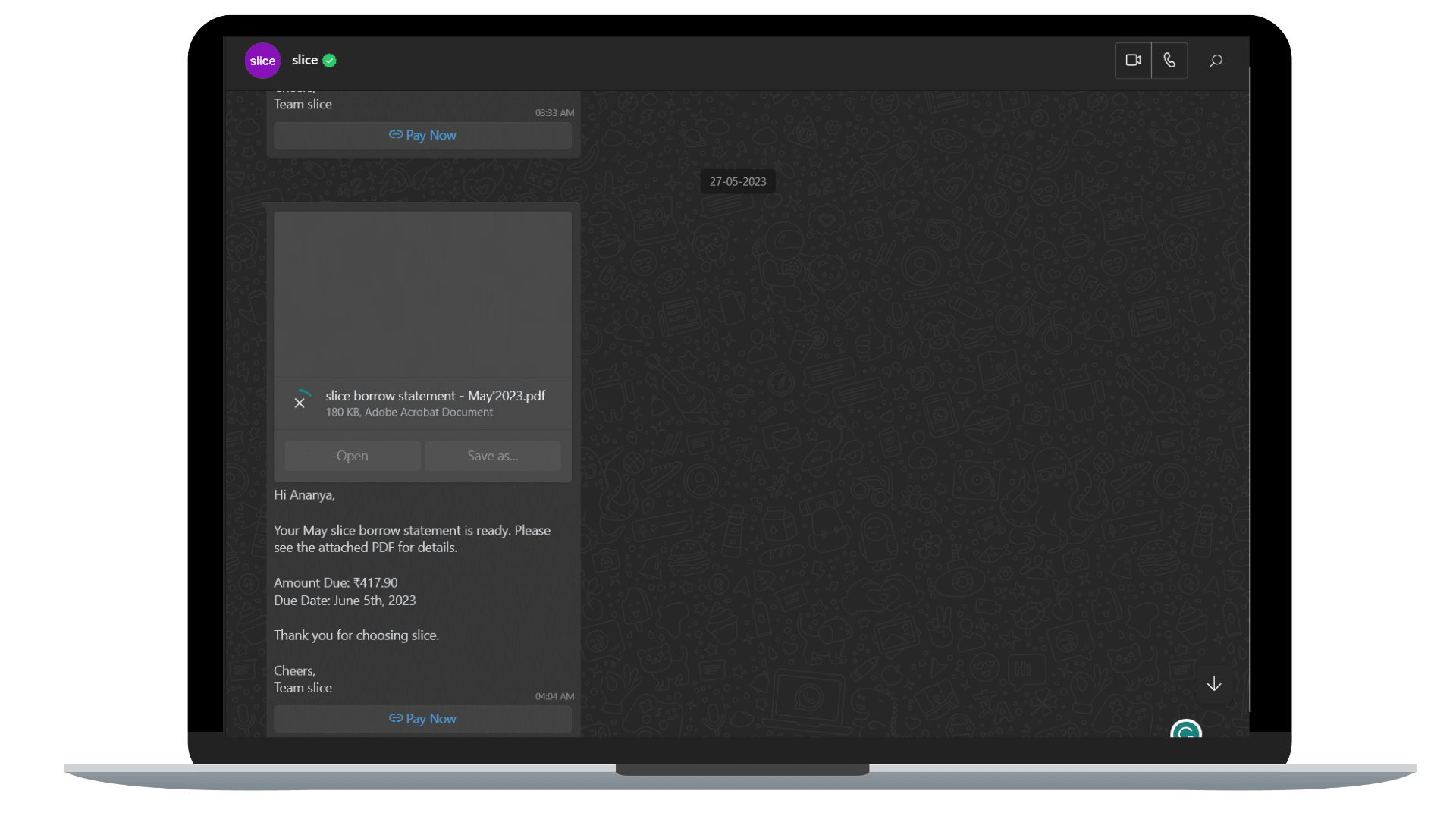
Delivery notifications
Businesses may automatically notify consumers via WhatsApp when an order is ready for delivery, giving them up-to-the-minute information on the delivery status. This can include alerts when the shipment is shipped, ready for delivery, or successfully delivered.
Ready to automate your WhatsApp marketing with Zixflow?
With Zixflow’s marketing capabilities, you can effortlessly connect with your contacts over WhatsApp
Get in TouchTicket updates
Businesses can utilize WhatsApp notifications to automatically alert customers whenever they sell tickets or host events. This can include updates about the location, ticket confirmations, event reminders, and schedule changes.
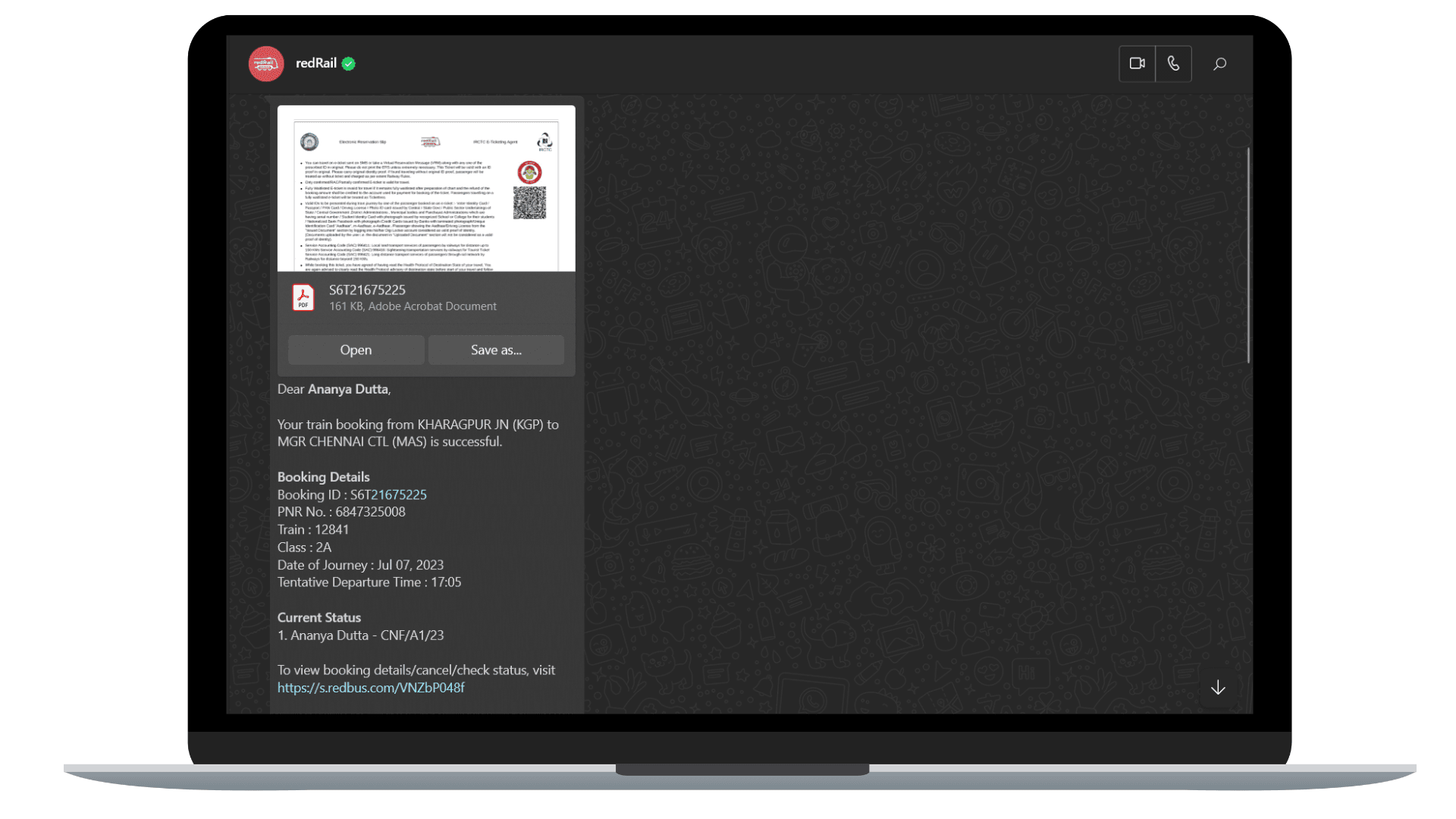
Personalized offers and promotions
Through WhatsApp, you can engage customers and encourage conversions with tailored offers and promotions. Here's how companies may use WhatsApp to send tailored offers and promotions:
Automated personalization
Use the marketing automation features in WhatsApp to dynamically add client names, information about previous purchases, or other personalized information to your messages. Customers feel valued and personalized as a result of this.
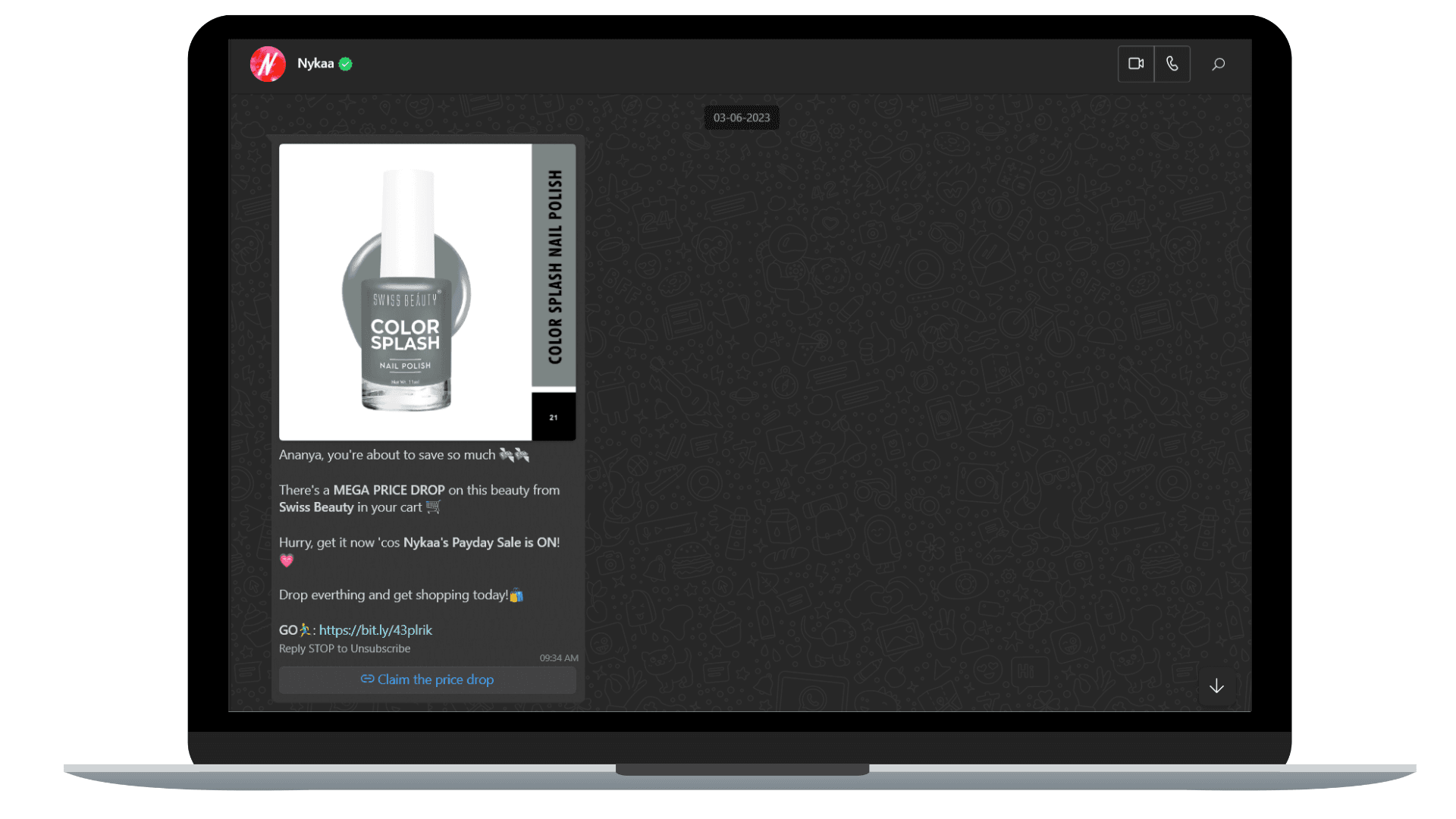
Exclusive discounts
Customers can receive special discount codes or deals via WhatsApp. These may be determined by their prior purchases, level of loyalty, or interaction with your business. Mention the precise discount or percentage they are qualified for to personalize the message.
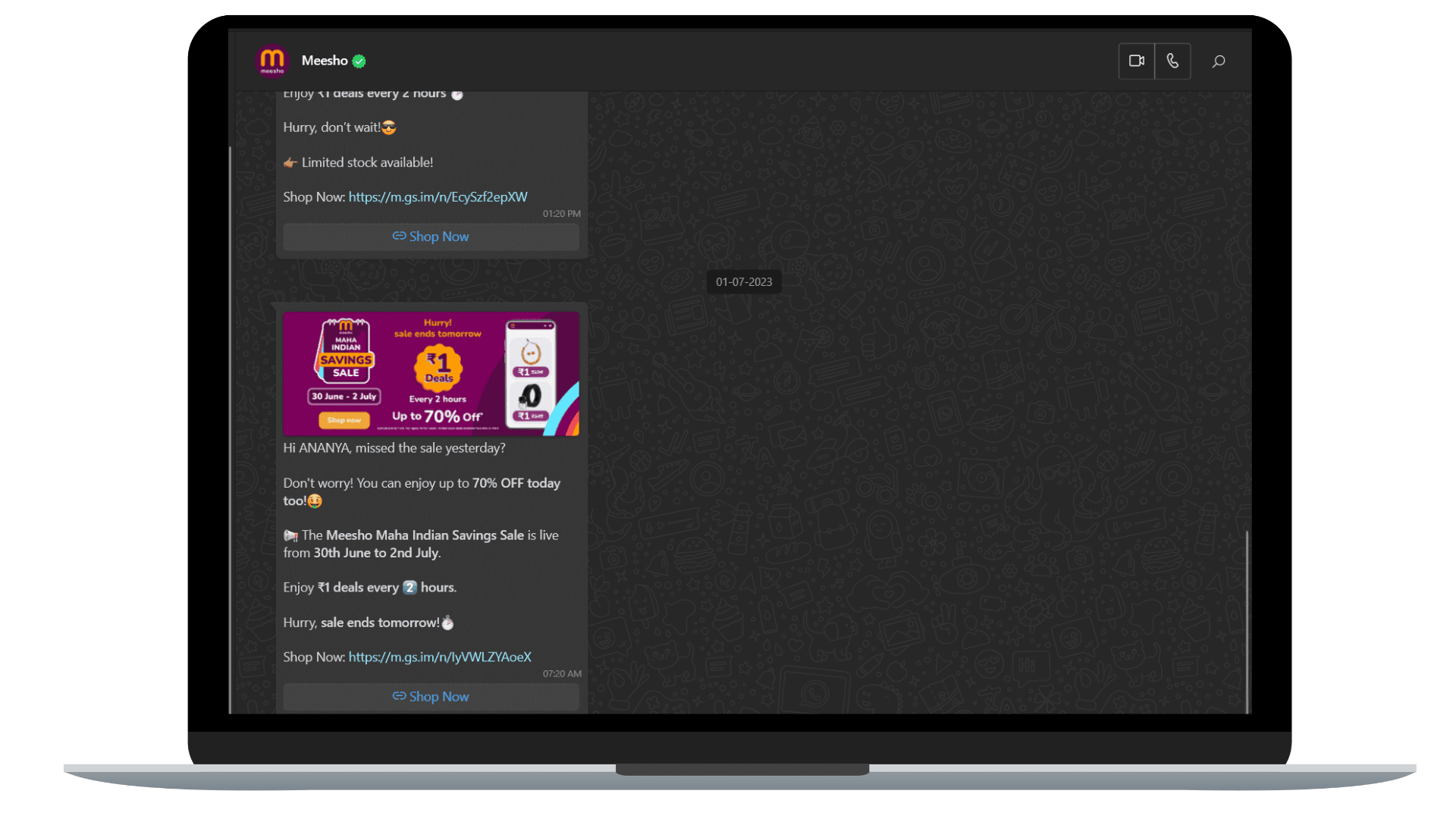
Product recommendations
Utilize consumer information and past purchases to offer tailored product suggestions over WhatsApp. Send messages promoting goods that are pertinent to a customer's browsing history or past purchases. This may come with exclusive discounts or package deals.
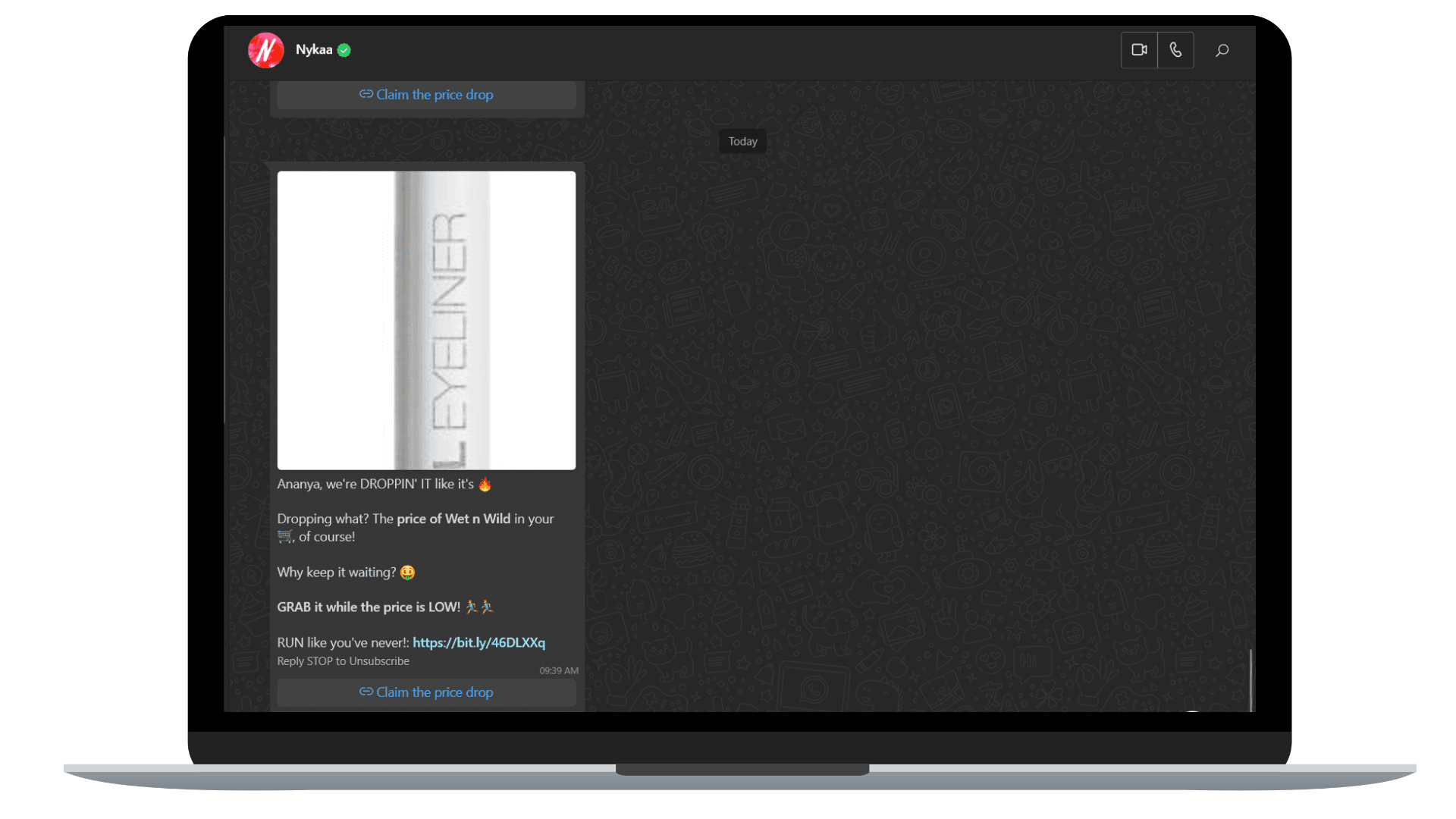
Take your WhatsApp marketing to another level with Zixflow
Reach out to more contacts and improve your engagement with Zixflow’s WhatsApp marketing functionality
Try the PlatformAbandoned cart reminders
Send automated WhatsApp messages to customers who add things to their cart but don't complete the transaction to remind them about the abandoned cart. Offer enticements to get customers to finish the transaction, such a discount or free shipment.
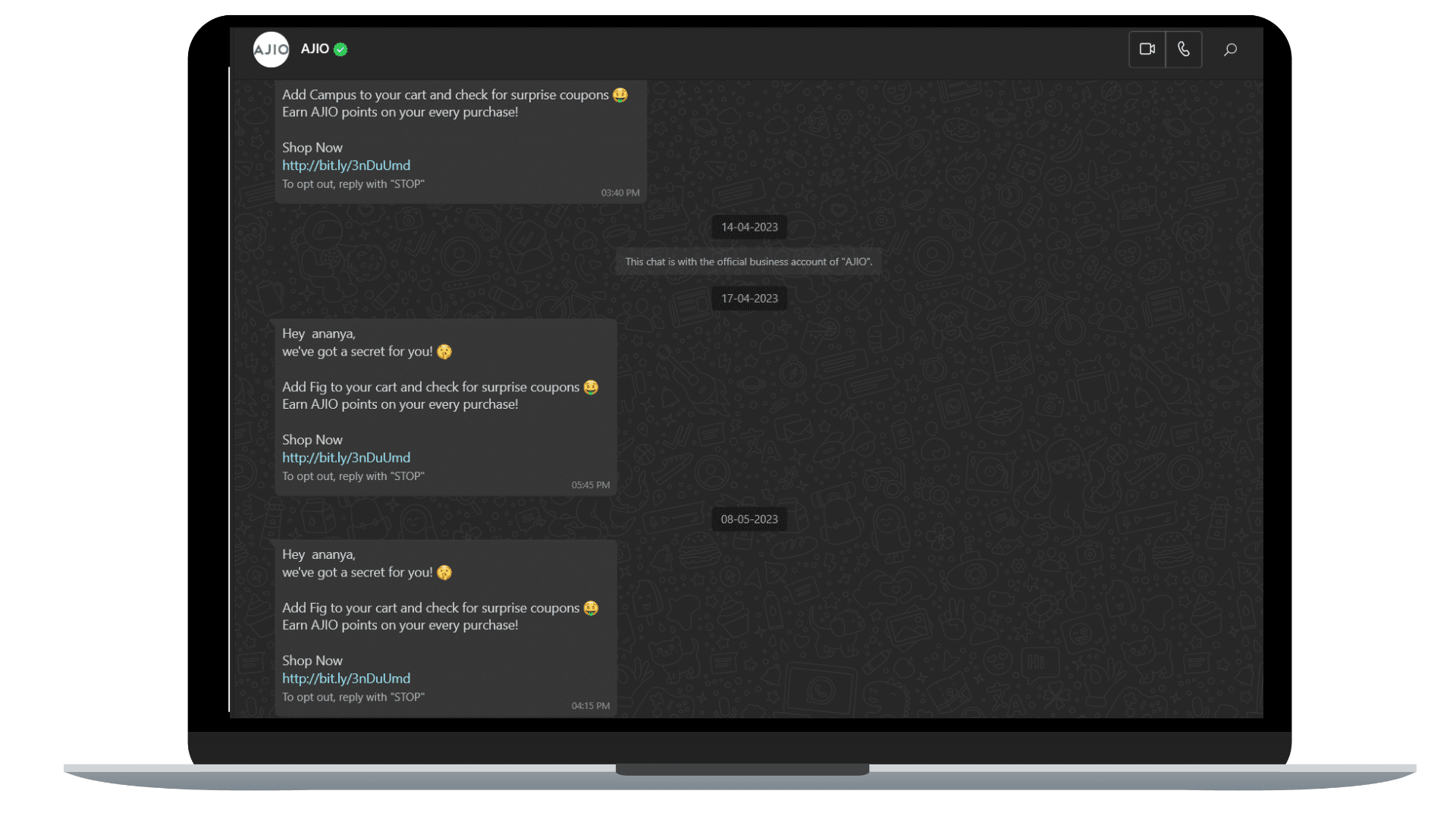
Limited time offers
By providing limited-time discounts and promotions over WhatsApp, you may evoke a sense of exclusivity and urgency. To let clients know about time-limited offers, flash sales, or early access to new product launches, use personalized messaging.
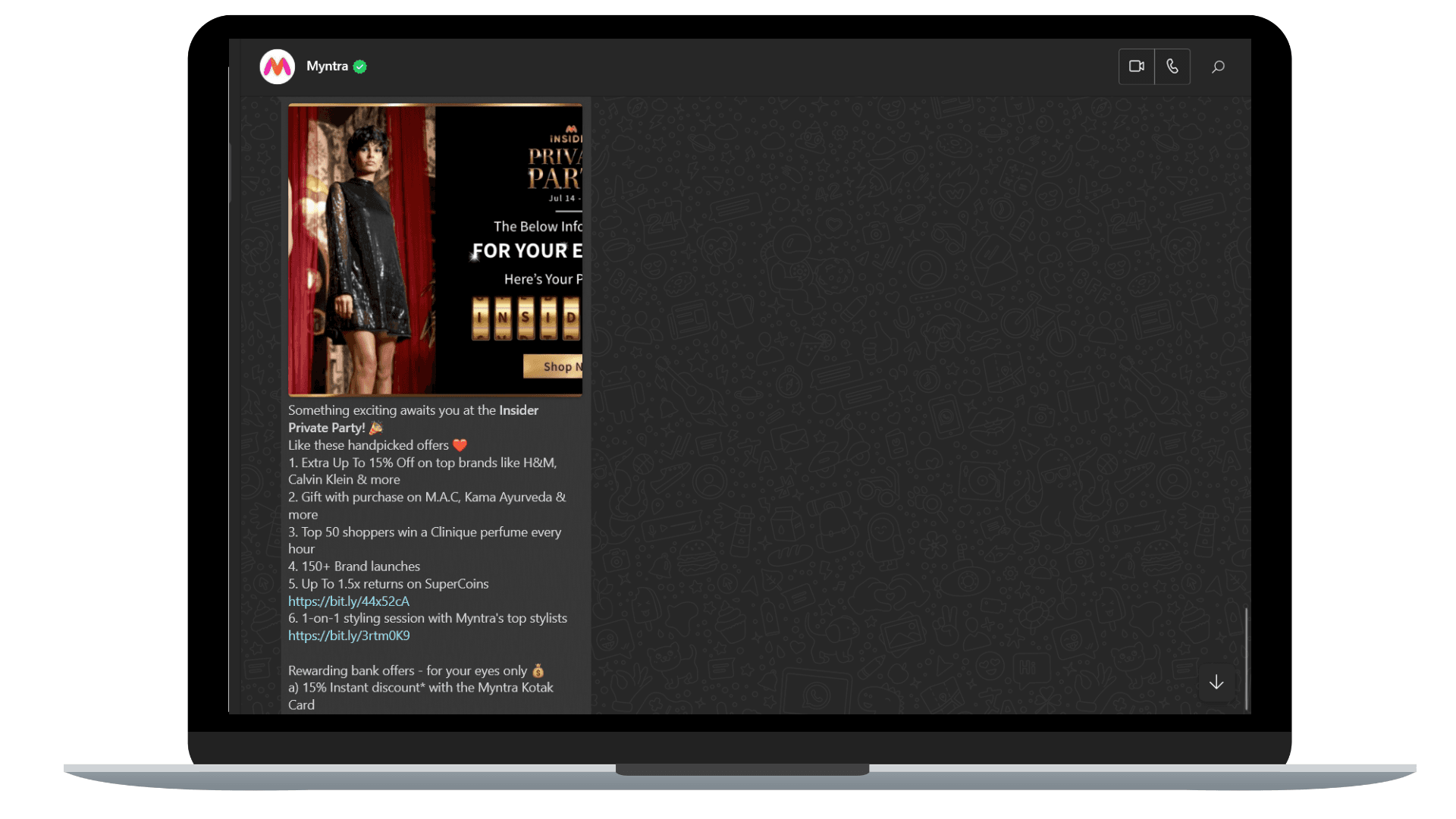
Automated appointment reminders
Businesses can speed up the process and guarantee that consumers are informed and organized by using WhatsApp to schedule and recall appointments.
Automated appointment reminders can be sent to clients using WhatsApp. These notifications can be set to go out a certain number of hours or days before the appointment. Include crucial information like the date, time, place, and any instructions or prerequisites.
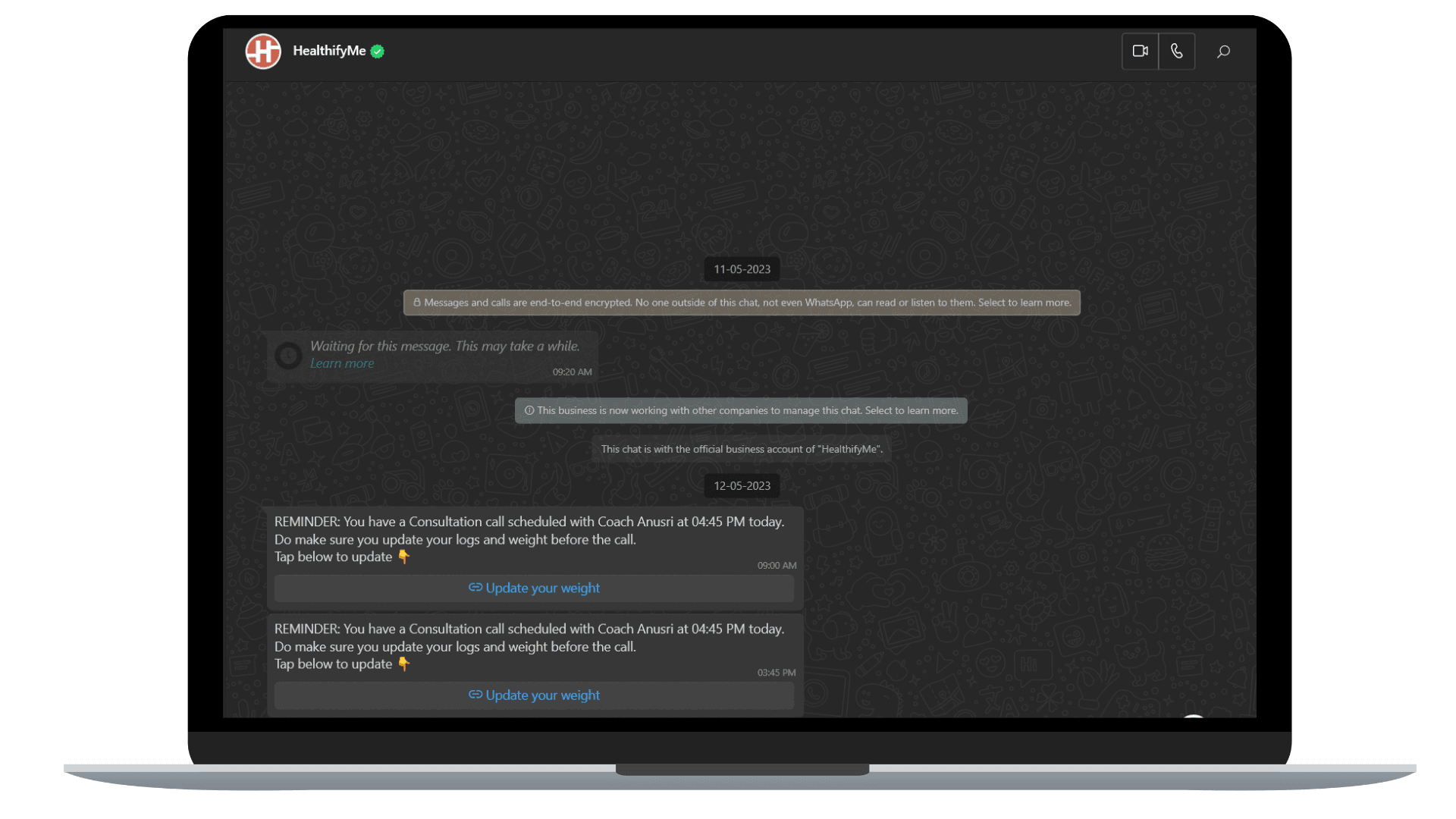
Boost your business with WhatsApp marketing automation
Businesses may gain a lot from automating WhatsApp since it boosts productivity, streamlines procedures, and frees up people to work on more important projects. You can also use some WhatsApp automation hacks which will save your time and give you great results.
Businesses may send personalized messages, organize chats, set reminders, and carry out other administrative duties using WhatsApp automation capabilities. This not only saves time, but it also enables staff to focus their efforts on vital tasks that might spur growth and raise customer satisfaction.
Let’s try Zixflow for free to boost the productivity of your business.
